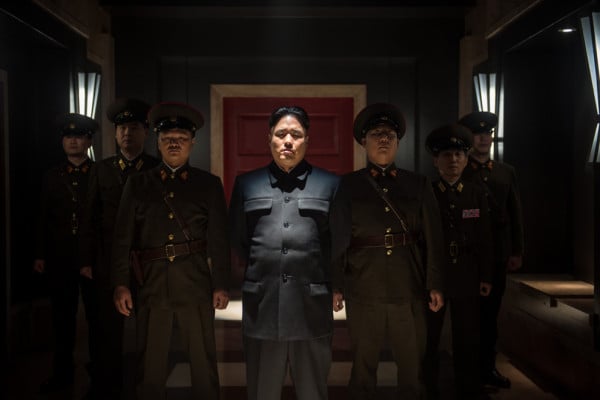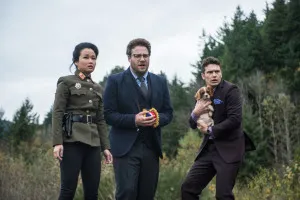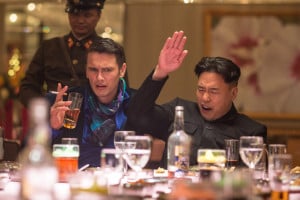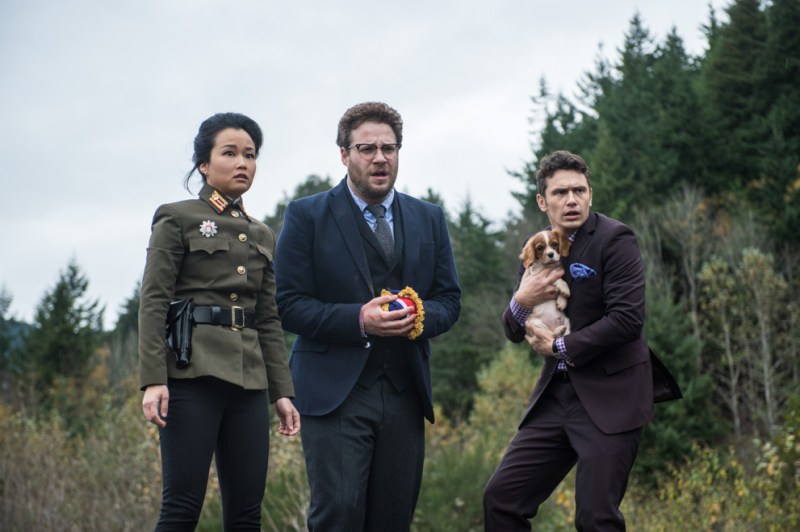
Fu Manchu was the original cinematic East Asian — scheming and mysterious, he was a force of overwhelming evil. He shunned traditional weaponry for his own exotic arsenal: charms, snakes and strange elixirs. He was the originator of the Fu Manchu mustache and, unfortunately, a longstanding Western tradition of portraying Asian characters as villainous and backwards. Manchu was also played by non-Asian actors for the whole of his onscreen life. Australian, English and American performers all played this tired archetype with the help of racial makeup, or yellowface.
Manchu’s is a legacy with lasting repercussions. Actors since have donned queues, drawn on pencil-thin mustaches and tinted their faces. Whereas blackface — the use of stage makeup to darken the complexion — is now taboo, yellowface is still accepted and even commonplace in contemporary cinema — in “I Now Pronounce You Chuck and Larry” and “Balls of Fury,” among others. Yellowface isn’t as exaggerated as it was in the 1950s, say, but racist portrayals of Asian characters are still prevalent.
Orientalism — the representation of Asian cultures and characters through gross generalizations and stereotypes — isn’t a good-faith attempt at understanding another culture. Frankly, it’s lazy. Case in point: “The Interview,” a film of more recent mint, camouflages its orientalism as politics — Kim Jung-un’s nuclear trigger-happiness stands in for all of Korean culture. The esteemed leader of North Korea receives no sympathy in the United States, so there’s no defending him, or his country, from caricature in the film.

That’s not to say that I’m defending his image or his leadership. Neither is especially deserving of approbation, but the Kim of “The Interview” is bumbling, repressed and arrogant, a child-emperor with a nuclear arsenal and a cortège of fawning party officials at his behest. The film adds little in the way of depth or humor to (let’s be honest) current depictions of Kim. Rather, it plays on a collection of assumptions — an accent, a hairdo, a hidden predilection for western entertainment — and attempts to sanction its stereotypical imagery under the guise of politics.
Worse still is his right hand (wo)man, Sook Yung Park. As a one-dimensionally obedient, impassive character, she’s a stock orientalist archetype, albeit of a different stripe than Manchu. In “The Interview,” Park is a propagandist whose sole role is that of the attractive distractor. She’s also the typical stalwart party official. When we meet her, she’s starchy and sexless, but as the plot progresses, she sheds her party loyalty and uniform in tandem. The parallel between her decline in party affiliation and her impassivity is intentional — as Park moves away from her role as an essentially “Korean” character, she gains color and depth, becoming dynamic and interesting.

“The Interview” is still subtle compared to the yellowface productions of decades past. Fu Manchu and Charlie Chan are easy targets, but the more nuanced orientalism of contemporary cinema is, in some ways, more harmful than the blatant stereotyping of its predecessors. “Chuck and Larry” gave the half-Filipino actor Rob Schneider a bowl cut and bad eye make-up. “Eat Pray Love” paints a rose-hued portrait of the Middle East as a land of enlightened souls — a prime vacation destination for 40-something women in search of self. The latter isn’t explicitly insulting — some might even call it flattering — but the simplicity of the depiction fails to do justice to a multi-faceted culture. The apparent harmlessness of this brand of orientalism allows its subconscious impacts to persist.
“Eat Pray Love” and “Chuck and Larry” are instances of a more deeply-rooted cultural phenomenon that has historically relegated Asian characters to the role of mystic, sidekick, villain, or clownish next door neighbor (see: Mickey Rooney, “Breakfast at Tiffany’s”). In the case of “The Interview,” politics and cultural stereotyping are intertwined, each perpetuating the other. “It’s all for the sake of comedy,” some argue. But where’s the humor in overt racism?
Contact Madelyne Xiao at madelyne ‘at’ stanford.edu.
